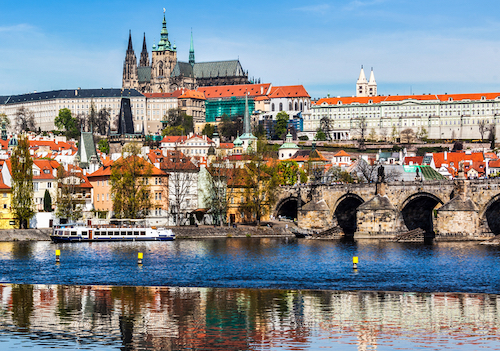Cancer care in the Czech Republic is excellent, particularly in Prague, where the Proton Therapy Centre is proving to be a growing destination for medical tourists from nearby countries such as Germany, Austria and the UK.The Czech Republic has an excellent overall standard of healthcare, especially in the larger cities. The state health cover meets the needs of locals and expat residents alike, and a benefits system is in place to help those who cannot pay for their own care. Private health insurance is also available in the country.
In the UK, cancer care is of a high standard too, but Prague in particular has overtaken the treatments available on the UK’s NHS, especially when it comes to more complex cancers. Although you will be treated for free in UK hospitals, procedures are often very invasive and treatments can have side effects that last for a long time and leave people feeling worse than the original cancer did.
Prague’s Proton Therapy Centre provides an inticing option even for people who do not live in the Czech Republic. Proton treatment is much less invasive than surgery and has far less horrific side effects than radiation therapy, which can lead to sickness and a further decrease in immune system functioning.

There are currently plans to introduce proton therapy at a couple of specialist cancer hospitals in the UK, too, but these will not be available for all patients or for all types of cancer. Prostate cancer is one of the most common cancers among men, with more than a quarter of new male cancer cases being prostate-based, and it is also hard to treat without invasive surgery and radiation therapy. This is one cancer that proton therapy can really help with, but current plans do not include this condition on the NHS.
Expats from the US will find a similarly high level of comparative care, with some reporting that they received exactly the same type and standard of treatment as they would have back home, but all free of charge rather than racking up huge medical bills. Speaking to Democrats Abroad, one expat reported how she called doctors back home in the US and got them to talk her through the exact procedures she would need to undergo — and then she found that the treatment she was receiving in her new home was exactly the same, except for being free at the point of service.
As well as the Proton Therapy Centre and its new proton treatments, other international developments are being made in cancer care, led by researchers in the Czech Republic. A team working at the Institute of Organic Chemistry and Biochemistry of the Czech Academy of Sciences, which is based in Prague, have recently come up with a new way of treating various types of cancer by stopping the body from metabolising glutamine. At the time of writing the study is currently going through clinical trials, but treatments are expected to come into play by 2025.

Another team of Czech scientists have found a way to get cancer drugs directly inside a tumour, thus reducing the amount of pressure on the rest of the body. And alongside the new developments that are happening, all the usual treatments are available wherever necessary: chemotherapy, radiotherapy and hormone treatment are all available for free for all residents through the state health system, and preventative care for people who are particularly susceptible to specific types of cancer, or who have a family history of certain cancers, is of a high standard too.
One of the few concerns about cancer care in the Czech Republic springs directly from all the excellent new developments listed above. Some worry that the state health system will become overburdened by medical tourism, even though people who travel to the Czech Republic for treatment will be paying for themselves directly.
Many doctors in the Czech Republic work in both the public and private sectors, so with increased demand from medical tourists and those opting to pay privately, the amount of time available to treat people through the state health system is decreasing. At the moment this is not too much of a problem, and there have so far not been any reports of people not getting the treatments they need, but it is worth considering how this might affect all types of healthcare in the future, including cancer care.

Some expats might find huge differences in standards of care based on where they are living, too. Prague has an excellent reputation for cancer care, and Brno has a good general hospital as well, which offers oncology services. But if you live in a rural area and are diagnosed with cancer, you might find yourself having to travel into Prague or Brno for treatment — and when you are undergoing a difficult procedure such as chemotherapy on a regular basis, adding a stressful journey onto your already strung-out immune system can have important consequences for your health.
Getting a diagnosis in the first place can be harder in rural locations, too. Many of the doctors’ surgeries and medical facilities outside of the major cities do not have up to date technology, and often they are severely understaffed, which means you might have to wait a long time or travel outside of your local area before you can be diagnosed. If you are worried about a health problem you currently have, or if there are high rates of cancer in your family history, make sure you do your research into the local medical facilities in the area you plan to move to before you go.
Would you like to share your experience of life abroad with other readers? Answer the questions here to be featured in an interview!

